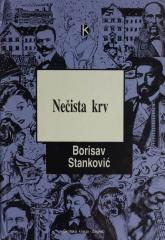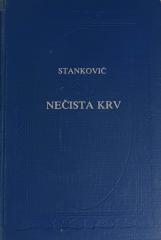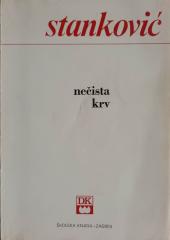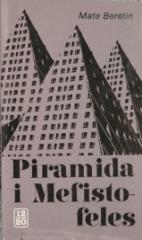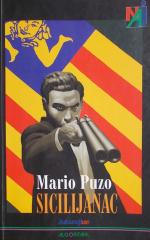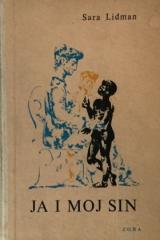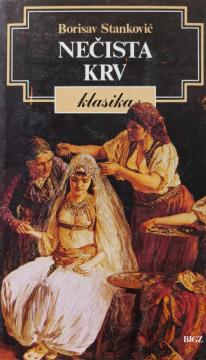
Nečista krv
"Impure Blood" (1910), Borisav Stanković's masterpiece, is a psychological novel that explores the themes of tradition, passion, social norms and the tragic fate of the individual in the patriarchal society of southern Serbia.
Set in Vranje at the end of the 19th century, the novel follows the fate of Sofka, a young girl from a wealthy čaršija family, whose life is determined by family and social pressures.
Sofka, the daughter of the wealthy Hadži-Trifun, was raised in luxury, but also by the strict rules of čaršija morality. Beautiful and sensitive, she is a symbol of a luxurious but oppressive world. Her father, faced with financial problems, decides to marry her to Tomča, the son of the poor but once respectable Marko. The marriage is arranged for convenience, and Sofka, although unhappy, accepts her fate submissive to tradition. Tomča, rude and uneducated, despises Sofka because of her "impure blood" - an allusion to her origins and social prejudices.
The novel follows Sofka's internal conflict: her sensuality and desire for love clash with patriarchal expectations. Marriage to Tomča becomes a physical and emotional burden, and Sofka sinks into despair, aware that there is no way out of the shackles of tradition. Stanković masterfully portrays her struggle with guilt, passion, and loss of identity. Characters like Marko and Hadži-Trifun reflect the complexity of the čaršija mentality, where honor and wealth dominate human emotions.
Više primeraka je u ponudi
Primerak broj 1
- Library stamp
- Traces of patina
